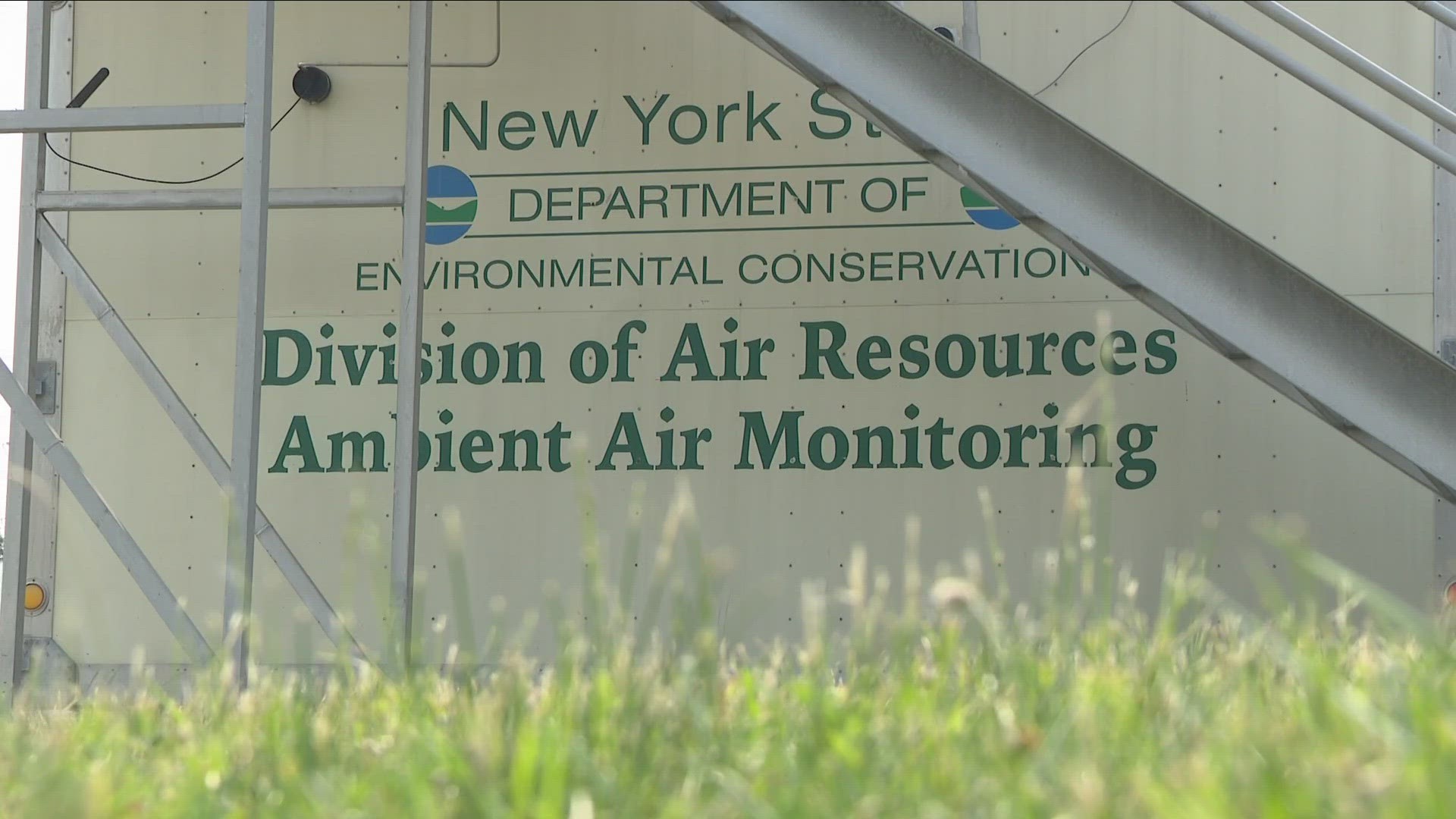BUFFALO, N.Y. — The air quality index hit 230 in Buffalo on Wednesday, which the Environmental Protection Agency (EPA) considers "very unhealthy."
2 On Your Side reached out to doctors and environmental experts to answer the questions people in Western New York need to know as another day of smoke choked skies is forecast Thursday.
What is an air quality alert? How long will it last?
An air quality alert is issued by the New York State Department of Environmental Conservation (DEC). According to the DEC's website, an alert is issued "when DEC meteorologists predict levels of pollution that are expected to exceed an Air Quality Index (AQI) rating of 100." How long it will last proves trickier to answer. What is known right now is that there will be an advisory in place for the rest of Wednesday through all of Thursday. According to 2 On Your Side meteorologist Patrick Hammer, heavier rain on Sunday or Monday could be key in getting the smoke to subside.
How can I check the air quality every day?
Checking the air quality index is easy. If you have a weather app, it is included in the daily forecast. You can also check the EPA's AirNow system. It updates consistently and provides a tangible number for citizens to check.
What caused the air quality alert?
Wildfires in Quebec, Canada, caused the air quality alert. The Canadian Wildland Fire Information System (CWFIS) publishes daily reports. One of the reports, the Fire Weather Index (FWI), attempts to quantify fire intensity. Quebec and parts of Ontario have FWI numbers of over 30, the highest category. Historically, these areas have FWI readings between 5-10.
Who is most affected by an air quality alert?
According to Erie County Department of Health (ECDOH) Commissioner Dr. Gale Burstein, younger children, older adults, those with chronic lung disease or cardiac conditions, and smokers are highly susceptible to poor air quality. From a health perspective, pregnant women tend to be more susceptible to polluted air.
Dr. Burstein told 2 On Your Side, "Their [pregnant women] circulation is different than non-pregnant women. Their blood vessels dilate, and their heart has to work faster. Some of the particles could affect the health of the pregnancy."
From a psychological standpoint, young children who recall the way COVID-19 disrupted their lives may be prone to anxiety caused by the smoke-filled air.
According to the National Alliance on Mental Illness (NAMI), Buffalo and Western New York executive director Jeffrey Pirrone said there is a mental health component for younger children who also lived through the pandemic.
"One thing that we are seeing is that, among young people, when you start hearing words about isolation and staying inside, it sort of induces a trauma response from COVID," Pirrone said.
Pirrone went on to add that elementary-aged students do not have a reference point or life experience to know that this is temporary because the last time they were told that they were indoors for two years.
"Schools and families need to be prepared to provide the mental health supports that are needed to help kids navigate this anxiety," Pirrone said.
What can I do to prevent and reduce exposure to polluted air?
Dr. Burstein says that our air quality is categorized as very unhealthy, so avoiding all physical activities is a must. If you do have to go outdoors, she advises limiting your activities to short durations of time is best.
"The best way to stay healthy in these conditions is to stay indoors," Dr. Burstein said.
She told 2 On Your Side, "When you are indoors, you really want to make sure that you do everything you can to prevent that outdoor air from coming in."
Dr. Burstein's recommendations included closing the windows, shutting doors, and turning your A/C on. Wearing a tight-fitting N95 mask is best if you are outside. Using the recirculated air setting in your car with the windows up is the best method to filter the air if you have to be on the road.
As far as those who unfortunately lack shelter or are caught outside unwillingly, Dr. Burstein recommends going to a library.
What is fine particulate matter? How do I protect myself against it?
You've probably heard a lot lately about fine particulate matter (PM 2.5). So what is it exactly? According to Dr. Burstein, PM 2.5 is a measure of "particles from ash, smoke, whatever is emitted from fires. It includes gases like carbon monoxide and carbon dioxide. Those are dangerous and compromise our area's air quality right now." People in Western New York report seeing small bits of ash falling from the sky. Burstein said, "This particulate matter when it gets into the airway it causes a lot of inflammation."
What do I do for tomorrow?
"People should think ahead," Dr. Burstein told 2 On Your Side. "What's on their agenda tomorrow and if it involves outdoor activities, think about rescheduling those or doing what you can indoors instead of outdoors."

